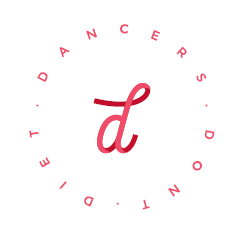Zinc Deficiency in Dancers
In 1934, zinc was recognised as an essential trace element.
It has such an important role in our health, wellbeing and performance.
It's also one that can be easily deficient in dancers and athletes, depending on their particular eating habits.
What does Zinc do?
Energy production
Improve immune system functioning
Red blood cell production
Wound healing
Growth (especially in children and adolescents)
Appetite regulation
What happens with Zinc deficiency?
Compromised appetite, also known as anorexia
Alteration in taste, which often leads to reduced food intake
Fatigue, tiredness
Prone to getting cold/flu
Longer time to heal from infections and cold/flu
Consequences of inadequate energy intake (e.g. low mood, fatigue, depression, anorexia nervosa, amenorrhoea, increased injury rates and frequencies) often follows Zinc deficiency due to compromised appetite and intake.
Those at risk of Zinc deficiency
If you are vegetarian or vegan, or follow Low Fat/Protein diets, have high physical activity load, under lots of stress, and/or have very limited food variety, you can be at high risk of developing Zinc deficiency.
Treatment and Prevention of Zinc deficiency
To prevent Zinc deficiency, it's important to have a varied and adequate food intake that includes grains, meat and fish, eggs, veggies, fruits and beans/nuts.
If you are a vegetarian or vegan, take extra care as you'd see in the list below that most zinc-rich foods are of animal origin - you'd need plentiful of beans and nuts (and eggs, if you are a vegetarian not vegan).
Foods rich in Zinc
Eat these foods to prevent zinc deficiency:
Meat
Seafood - especially oysters
Eggs
Beans - chickpeas, lentils, baked beans, peanuts/peanut butter
Nuts and seeds
Wheat germ
Nutritional yeast
If you are deficient in Zinc, it's best to supplement in appropriate amounts to help bring the levels back up to normal, so that your energy production and overall health does not continue to be compromised.
If this is a chronic issue, it's best to work with a Dietitian who understands your needs so that you can plan ways to improve your Zinc status and prevent future deficiencies.
It just goes to show that any kind of eating habits that skew towards omitting or favouring particular foods or food groups often compromise performance, while having a flexible and varied eating style allows you to perform at your best.
Fumi x
Micheletti, A & Rossi, R & Rufini, Stefano. (2001). Zinc status in athletes: Relation to diet and exercise. Sports medicine (Auckland, N.Z.). 31. 577-82.
